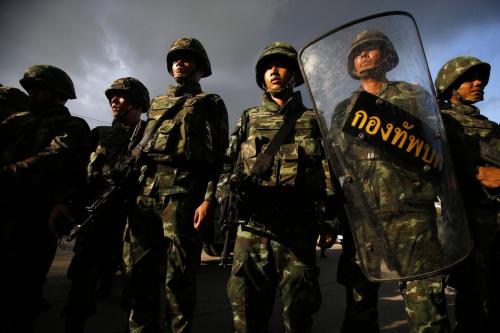Amnesty International Cancels Briefing on Torture in Thailand

Amnesty International Cancels Briefing on Torture in Thailand
Amnesty International cancelled a briefing on torture committed by Thailand's military junta, which took power in a coup from an elected government in 2014. The Thai government claimed that the briefing would violate Thai labor laws, so Amnesty International decided to cancel the briefing at the last minute, although the Amnesty International employees are not sure how they, a British and an Indonesian passport holder, would be in violation of any Thai labor law. We can infer that the mention of the law was likely a pretext and a threat.
The Amnesty International report cited 74 cases of "ill treatment" by the Thai military government. The sources are interviews with victims and their relatives, as well as victims' letters, court documents and medical records. The report also acknowledged that "Thailand’s penal code does not define torture as a distinct criminal offense or unequivocally prohibit courts from using evidence obtained through torture." The reason for Amnesty International's intervention is that "the junta’s orders have overridden Thai laws that guarantee legal counsel for detainees and require prosecutors to bring them to court within two days of an arrest." The Thai government is not happy about the Amnesty International report, and Amnesty International is questioning the Thai government's openness to scrutiny.
One word on the western media coverage of Southeast Asia: it's usually quite slow (this is the first article on Southeast Asia in a few days in NYT's Asia-Pacific section). As an intern at the New York Times's Beijing bureau last summer, I know how understaffed they are in international locations and how slow the edits are in Hong Kong, their Asia-Pacific headquarters. The main strength of well-known western media such as the New York Times is that their sourcing is usually comprehensive and that their editorial standards are high.